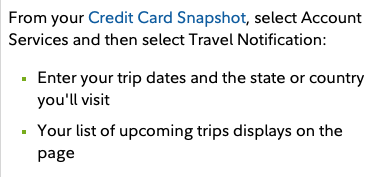Some time ago I opened a Fidelity account in addition to my Schwab account. To see which brokerage service and short term cash management offerings I liked best, before potentially consolidating them in the future. I wanted to briefly summarize the pros and cons of their handling of cash in different types of accounts, hoping to solicit feedback on what I might be overlooking. Perhaps others could contrast against similar offerings from E-Trade, TD Ameritrade, etc. My conclusion is that Fidelity "wins" at cash management in a brokerage account, while Schwab "wins" at checking/ATM.
Brokerage:
Without any effort from the user, Fidelity keeps the cash balance of the brokerage account invested in SPAXX (Fidelity Government Money Market) currently yielding 1.99%. Schwab keeps the balance in a BankSweep account currently earning 0.30%. So Fidelity is clearly more investor friendly.
My related question is that I see mention of these accounts on my Schwab statement, so maybe there is some automated buy/sell option that I have been overlooking, that would make a Schwab brokerage account more competitive?
Checking:
Cash in Fidelity Savings & Checking current earns 0.37%. While cash in Schwab Investor Checking earns 0.40%. (They may not be getting compared on the exact same day). So the interest rates are quite similar which would make the comparison a draw. But Schwab makes it so easy to set a travel notice for ATM cash/debit transactions that it is better choice for anyone who travels very often.
Fidelity makes it tempting to keep any excess cash that would otherwise sit in the checking account over in the brokerage account. But it would be tedious to monitor a small checking balance frequently in an effort to keep it topped off. Has anyone found other options, such as will Fidelity send an alert if the checking account balance is below a certain amount?
Brokerage:
Without any effort from the user, Fidelity keeps the cash balance of the brokerage account invested in SPAXX (Fidelity Government Money Market) currently yielding 1.99%. Schwab keeps the balance in a BankSweep account currently earning 0.30%. So Fidelity is clearly more investor friendly.
My related question is that I see mention of these accounts on my Schwab statement, so maybe there is some automated buy/sell option that I have been overlooking, that would make a Schwab brokerage account more competitive?
- ValueAdvMoneyFd SWVXX 2.22%
- SchInvestorMoneyFund 2.19%
Checking:
Cash in Fidelity Savings & Checking current earns 0.37%. While cash in Schwab Investor Checking earns 0.40%. (They may not be getting compared on the exact same day). So the interest rates are quite similar which would make the comparison a draw. But Schwab makes it so easy to set a travel notice for ATM cash/debit transactions that it is better choice for anyone who travels very often.
- To set a travel notice with Schwab, just log into their website and a quickly set your date and destination as if you were booking a hotel.
- To set a travel notice with Fidelity have to take a lot of small steps which are not difficult, but a pain to do in 2019.
- Dial 1-800 number
- enter card # into IVR
- listen to the options and guess which one is to set a travel notice
- after getting connected to an agent provide provide card # verbally again
- provide last 4 digits of SS
- provide Fidelity account #
- provide name as printed on the card
- provide last travel notice destination as an additional security check
- then finally provide the travel destination and dates
Last edited:

